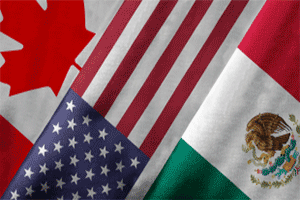 The U.S.-Mexico-Canada Agreement (USMCA) passed the U.S. Senate this morning and the deal is now awaiting President Donald J. Trump’s signature.
The U.S.-Mexico-Canada Agreement (USMCA) passed the U.S. Senate this morning and the deal is now awaiting President Donald J. Trump’s signature.
California Senator Dianne Feinstein voted in favor of the trade deal; Senator Kamala Harris voted against it.
The California Chamber of Commerce supports the USMCA based on an assessment that the agreement serves the employment, trading and environmental interests of California, the United States, Mexico and Canada, and is beneficial to the business community and the California and national economies.
“Mexico and Canada are two of California’s strongest trading partners and trade with Mexico and Canada supports nearly 14 million U.S. jobs,” Allan Zaremberg, CalChamber president and CEO said. “The USMCA is a necessary modernization to NAFTA that recognizes the impacts of technology on the three countries’ economies.”
The objectives of the USMCA are to eliminate barriers to trade, promote conditions of fair competition, increase investment opportunities, provide adequate protection of intellectual property rights, establish effective procedures for implementing and applying the agreements and resolving disputes, and to further trilateral, regional and multilateral cooperation.
Due to California’s position as a global leader in international trade, the priorities of the USMCA are important to the CalChamber’s members and the overall economic health of the state.
Background
The CalChamber actively supported the creation of the North American Free Trade Agreement (NAFTA) among the United States, Canada and Mexico, comprising almost 490 million people with combined annual trade with the United States being around $1.228 trillion in 2018. In 2018, goods exports exceeded $563.729 billion while goods imports totaled nearly $665 billion.
President Trump announced his intent to renegotiate NAFTA in May 2017. The negotiations started shortly thereafter, going through many rounds. In August 2018, the U.S. and Mexico reached a preliminary agreement, while the U.S. continued separate negotiations with Canada. In October, Canada and the U.S. came to an agreement right before a self-imposed deadline, reassuring the deal would remain trilateral. The pact was rebranded the United States-Mexico-Canada Agreement (USMCA).
Staff Contact: Susanne T. Stirling

